The 10th Anniversary Events of Shine Mongol High School
Shine Mongol High School
[Special Lecture]
2:00p.m.-3:00p.m. at Meeting Room of Hagi Hall
"The 10 Year Story of The High School"
Mr. Jantiv Galbaadrakh (President, Shine Mongol High School)
Mr. Osamu MIYATA (The Former NHK Announcer)
[The Anniversary Ceremony]
3:10p.m.-4:10p.m. at The Main Hall of Hagi Hall
Opening Speech
Congratulatory Speeches
Mr. Rentsendoo Jigjid (Ambassador, Mongolian Embassy of Japan)
Professor Osamu MIYATA (Vice Dean, Tohoku University)
Introduction of Shine Mongol High School (DVD)
Introduction of All Oversea Students of
Shine Mongol High School in Japan
Acknowledgment
Mr. Jantiv Galbaadrakh (President, Shine Mongol High School)
Closing Speech
Professor Katsutoshi MIZUHARA (Tohoku University)
[The Memorial Concert]
2:10p.m.-2:00p.m. at The Main Hall of Hagi Hall
Opening Speech
Dance and Music
Opening Traditional Dance by The High School Students
Matouqin (Solo)
Mongolian Dance
Japanese Traditional Song (Solo)
Piano (Solo)
Violine (Solo)
Social Dance
Chorus by Graduate Students
Japanese Traditional Song (Solo)
Mongolian Dance (Solo)
Mongolian Song (Solo)
Western Song (Solo)
Consort: Mongoloan Music by The High School Students
Mongolian Traditional Acrobatic Dance
Monglian Traditional Dance by The High School Students
Closing Speech
[The Memorial Party]
5:00p.m.-7:00p.m. at Bush Clover Cafe
〔What is Shine Mongol High School?〕
Shine Mongol High School is one of the private high schools in Mongolia that was established by Mr. Jantiv Galbaadrakh in 2000. He established the school when he was a graduate student of Tohoku University and implemented his curriculum studies research result into it.
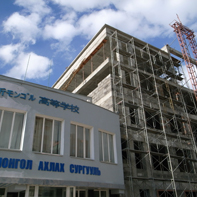
Shine Mongol High School is Japanese Style Full-time high school that provides a 3 year academic curriculum to students.
School years in Mongolia used to follow a 5-3-2 system, but the system was extended to a 6-3-2 system around September 2008. However, this system put a bit of constraint on students who wished to study abroad, as many foreign universities required a minimum of 12 years of school or a minimum of 3 years of high school. In other words, students in Mongolia were required to study 1 more year in order to fulfill the requirements for studying abroad. However, since the 6-3-2 system in 2008, Mongolian high schools have switched to the 6-3-3 system in September 2009.
The previous implementation of the school system is not the only problem Mongolian high schools have faced. Another problem involves the number of insufficient hours high school students study.
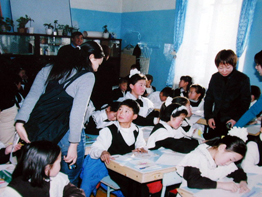
This situation has been a problem for quite some time and is still a problem today. It involves many Mongolian public high schools which include 10 year general schools. At these schools, 7 to 17 year old students share one school facilities and usually divide into two or three groups. Each group, including high school students, can stay at the school for around 4 hours. Therefore, enough time for studies cannot be provided to high school students.
Mr. Galbaadrakh’s goal was to establish a 3 year, full-time high school that would be able to satisfy the international criteria for lesson hours. He also thought about the importance of both high level science education and cultivation, including all side of students’ developmental characteristics. He modeled 1970's curriculum in Japan, which backed up Japanese hyper economic growth. He has also modeled other Japanese school system characteristics, such as school uniforms, school lunch, school sports culture clubs, volunteers, etc. His aim is to cultivate each student’s whole character through this unique Japanese style school system.
As a result, Mr. Glabaadrakh’s high school is thought to be one of top level high schools in Mongolia and hundreds of students now have opportunities to study in foreign universities.
〔What is the Anniversary Event?〕
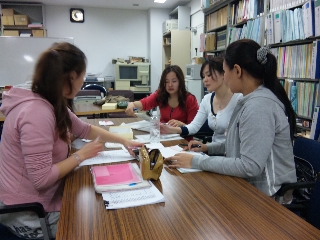
From the beginning of planning the establishment of Shine Mongol High School to now, many Japanese sympathizers have shared Mr. Glabaadrakh’s dream and have became sponsors. These sponsors include many people from ordinary citizens to nationwide famous companies. The oldest sponsors ended up organizing the group "Hishira Ippon no Kai (The One-Pillar Sponsor)". The intention of the group is that “our small support and donations for just one pillar of the school building will help develop the future leaders of Mongolian youth.”
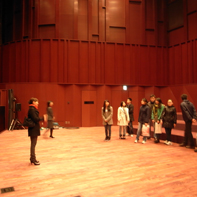
One of the aims of the event is that students who graduated from high school and stay in Japan invite these sponsors, Japanese friends and all other people who directly and indirectly support their lives in Japan and express their appreciation. The event also allows students who are now studying in the high school to introduce themselves to the Japanese supporters who help with their daily high school lives.
〔Relationship Between Shine Mongol High School
and Graduate School of Education, Tohoku University〕
The connection between Shine Mongol High School and the Graduate School of Education here at Tohoku University is both long and strong. This is due to the fact that Mr Galbeerdrakh received his Master’s degree at Yamagata University and enrolled as a Doctoral student in our Graduate School of Education. He studied the curriculum theory in our graduate school and revolved his basic curriculum at Shine Mongol High School around his results.
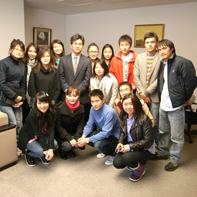
Occasionally, our faculty members have the opportunity to visit Mongolia and have also had a chance to advise the curriculum reform of Shine Mongol High School and the whole Mongolian secondary curriculum policy.
Our graduate school and Tohoku University have contributed many school facilities, thousands of desks and chairs, library facilities, sports goods, and PCs to Shine Mongol High School.
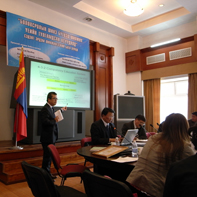
The examinees of the high school, who wish to study at a Japanese university, usually stay in Sendai, such as the base camp, and go to other cities in Japan to take their examinations. During their stay in Sendai, they visit our graduate school, meet our Dean, and experience mini lectures and university tours each year.
We also have the agreement of "School Volunteer", by which Tohoku university students can stay in Mongolia to reflect their request and stay as school volunteers.
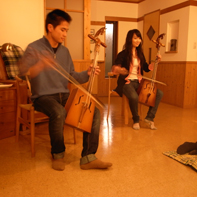
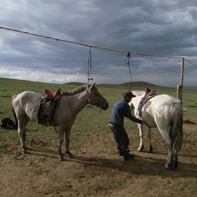
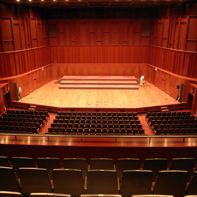 Photed by Kazuya Taniguchi
Photed by Kazuya Taniguchi